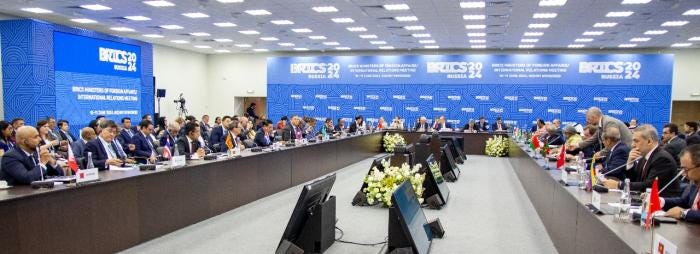A two-day meeting of BRICS Foreign Ministers was held in the Russian city of Nizhny Novgorod on June 10-11, 2024. BRICS now has ten members. In addition to Brazil, Russia, India, China, and South Africa, five new nations have been incorporated into the Group, namely, Saudi Arabia, Egypt, United Arab Emirates, Ethiopia, and Iran. Argentina had been included in the plans for the expansion of BRICS, but a new government in the South American nation decided to withdraw before its implementation.
§
BRICS 2024 Ministerial Meeting Joint Statement
The Nizhny Novgorod Ministerial Meeting released a Joint Statement that reaffirmed the ministers’ “commitment to strengthening the framework of BRICS Strategic Partnership under the three pillars of cooperation – politics and security, economy and finance, cultural and people-to-people exchanges. Th…



